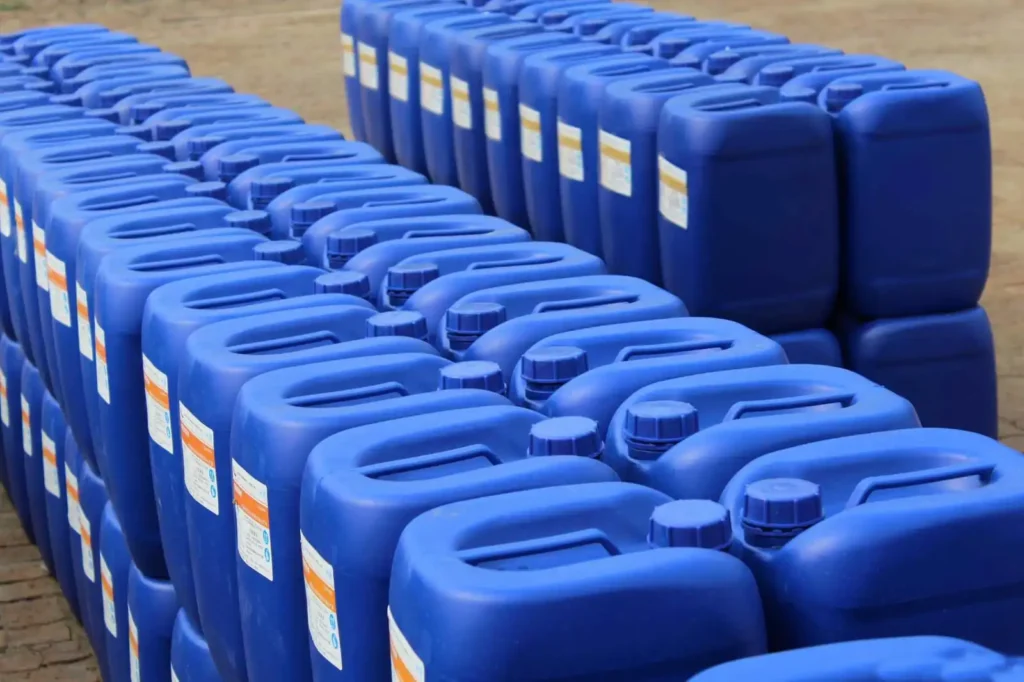In the vast cosmos of chemical materials, each one has its unique mission. Magnesium oxide, a seemingly ordinary white powder, plays a “finishing touch” role in modern PVC industrial production. It’s a master of eliminating defects, a cornerstone of stabilizing quality, and a key additive for driving the industry towards high-end and refined development. Today, we will delve into the core value of magnesium oxide and highlight how Messi Biology (河北镁熙生物有限公司), with its cutting-edge technology, is transforming this traditional material into a “secret weapon” to help the PVC industry.

Beyond “Defoaming”: The Comprehensive Value of Magnesium Oxide
When mentioning the role of magnesium oxide in PVC, many people first think of “defoaming.” This is correct, but its value goes far beyond that. It’s a multi-functional processing modifier with systemic contributions:
- Enhanced Thermal Stability: This is its most crucial function. By neutralizing HCl, it extends the “safe processing window” of PVC, allowing production companies to operate at higher efficiency without worrying about material decomposition, reducing scrap rates and saving costs.
- Improved Mechanical Properties of Products: Bubbles and decomposition defects are internal “stress concentration points” in the material, significantly reducing the impact resistance, tensile strength, and other mechanical properties of the products. Magnesium oxide, by eliminating these defects, strengthens the material’s density and uniformity at a microscopic level, making the final product stronger and more durable.
- Enhanced Surface Finish: Thanks to its excellent mold release and lubricating effects, PVC material with added magnesium oxide is easier to process into high-end products with smooth surfaces, uniform color, and delicate feel, meeting the stringent appearance requirements of fields such as home appliances and automotive interiors.
- Environmental Protection and Equipment Protection: Effective absorption of HCl gas greatly improves the working environment in production workshops, reduces corrosion to equipment, and extends the service life of molds and screws, bringing long-term economic benefits.
Messi Biology: Technology-Driven, Defining New Standards for Magnesium Oxide
In a highly competitive market, ordinary magnesium oxide products are no longer sufficient to meet the needs of high-end manufacturing. Messi Biology stands out because of its commitment to technological innovation driving product upgrades, redefining the superior standards for magnesium oxide used in PVC.
- Leading Application of Nanotechnology: Messi Biology has successfully industrialized nano-magnesium oxide and applied it to the PVC field. Nano-sized particle size (typically <100nm) brings unparalleled surface effects and small-size effects. Its huge specific surface area makes its acid absorption capacity and adsorption efficiency grow exponentially, requiring less usage but yielding better results. The extremely high dispersibility allows it to penetrate every corner of the resin system, achieving “molecular-level” protection, especially suitable for the production of ultra-thin, transparent, and other high-end PVC products.
- Strict “Consistency” Control: For large PVC production enterprises, the stability between batches of raw materials is crucial. Messi Biology has established a complete quality control system from raw material traceability to finished product delivery, using advanced DCS automatic control system to ensure that the purity, particle size, activity and other indicators of each batch of products are highly consistent. This “consistency” provides a fundamental guarantee for the long-term stability of customers’ products and the solidification of production formulas, avoiding frequent adjustments to production processes and product quality risks caused by additive fluctuations.
- Focus on “Surface Modification” Technology: To solve the compatibility problem between inorganic powders and organic polymers, Messi Biology has invested heavily in research and development of surface modification technology. By using special coupling agents (such as titanate, aluminate) to coat magnesium oxide particles, the wettability and dispersibility in PVC resin are greatly improved, avoiding interface defects caused by poor compatibility, allowing the function of magnesium oxide to be fully realized, and even having a certain gain effect on the toughness of the material.
- Deep Integration of Industry, Academia, and Research: The company has established close “industry-academia-research” cooperation with many universities and research institutes, not only focusing on the product itself, but also deeply studying the mechanism of action of magnesium oxide in PVC, providing customers with in-depth technical support and complete solutions, from laboratory testing to production line debugging, escorting the whole process.
Conclusion: Choose a Strategic Partner, Not Just a Supplier
In the pursuit of high-quality development and “Made in China” today, the PVC industry faces the pressure and opportunities of transformation and upgrading. The choice of raw materials is no longer just a cost consideration, but a comprehensive game of technology, quality, and supply chain stability.
Messi Biology offers not only a high-quality magnesium oxide product, but also a solution to improve product grade, optimize production processes, and enhance core market competitiveness. They empower traditional materials with technology, create every particle of powder with ingenuity, and are a trusted strategic partner for PVC production companies. Choosing “Messi” means choosing a promise of stability, efficiency, and moving towards high-end, jointly promoting Chinese PVC products to the world with more outstanding quality.
